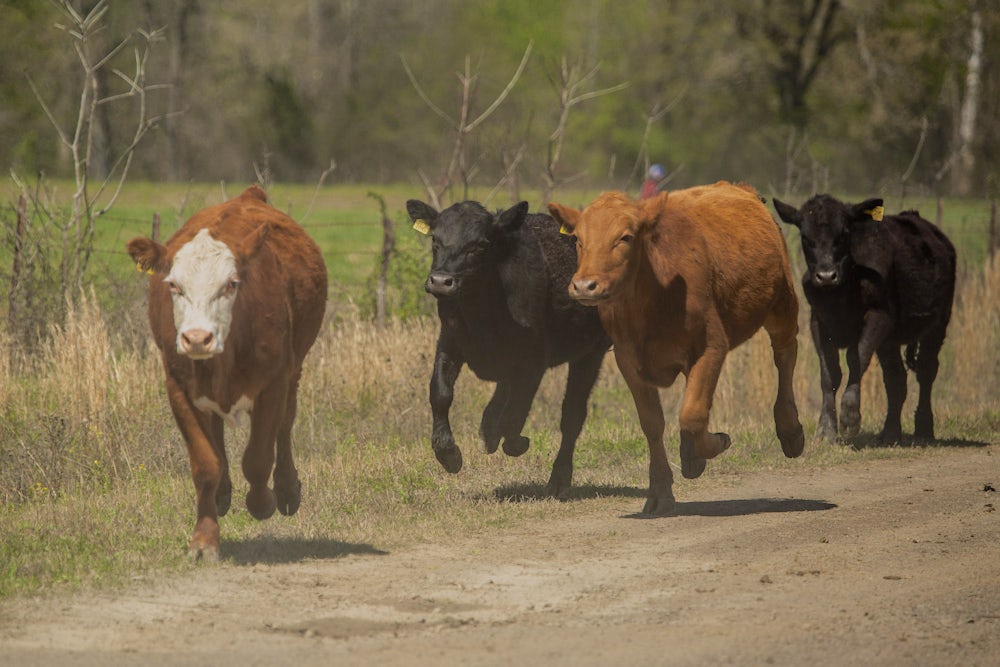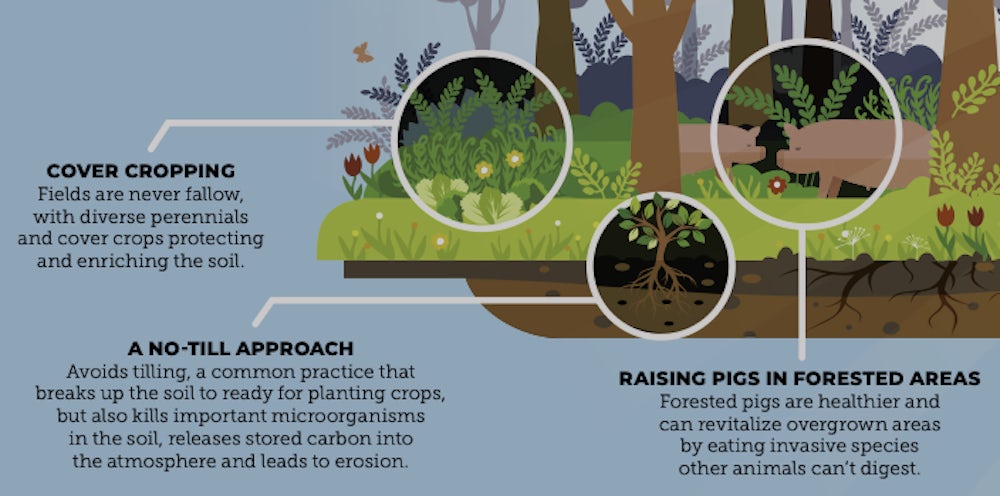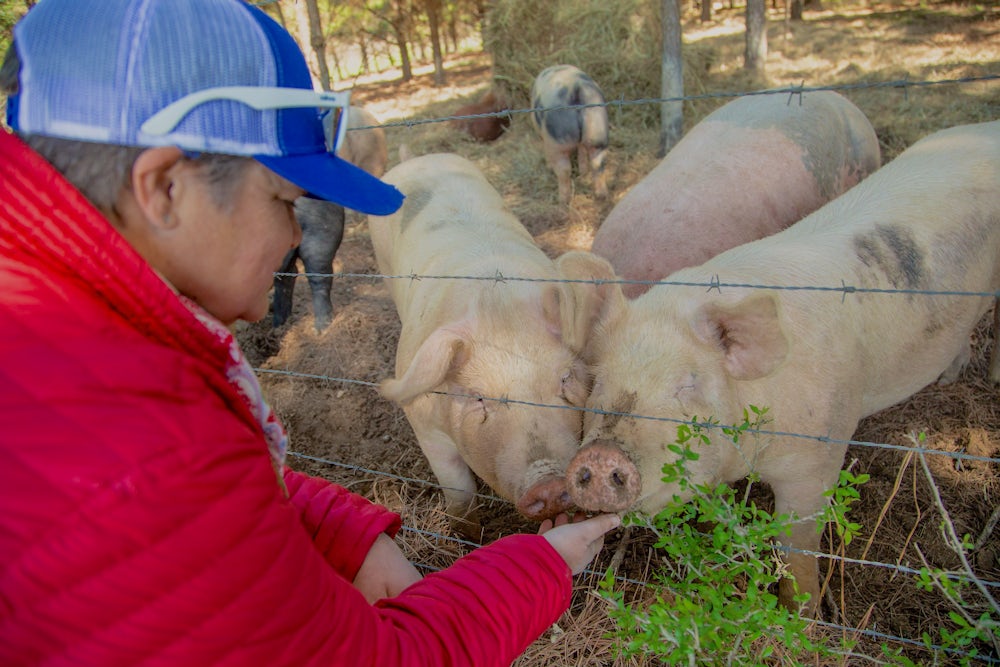When Donna Kilpatrick began leading Heifer Ranch’s agricultural programs four years ago, digging into the land would pull up light colored, clumpy, clay-like soil.
Today, breaking ground in that same ranch yields a shovelful darker in color, matrixed with plant roots and thick with the rich, earthy smell of healthy soil.
“That’s the kind of stuff that makes me hope I live until 120 and get to do this every day,” said Kilpatrick, who leads the Ranch’s agriculture team in implementing the regenerative farming practices that brought about the richer soil.
Regenerative agriculture describes farming and grazing methods that, among other benefits, “reverse climate change by rebuilding soil organic matter and restoring soil biodiversity” — capturing atmospheric carbon and improving ecosystem health. At the Ranch, this includes holistic planned grazing to move cows between pastures to prevent overgrazing, and planting cover crops whose roots aerate and stabilize the soil to avoid erosion and boost its nutrients.

Heifer Ranch, a 1,200-acre expanse of farmland in Perryville, Arkansas, recently became a Savory Global Network Hub — one of only 33 learning hubs around the world certified to equip farmers, ranchers and pastoralist communities with the tools and knowledge to regenerate grasslands according to the Savory Institute’s land management model.
“In Savory, we’re practicing holistic management,” Kilpatrick said, which requires understanding the land’s natural cycles — water, mineral, solar and energy — and the community dynamics of the living creatures within it. “Everything is connected,” she said. “One of the main things we’re trying to do is manage in a way that nature can heal itself.”
In April 2020, Kilpatrick completed the requirements to become an accredited Savory professional, leading to the Ranch’s designation as a Savory Hub and allowing Kilpatrick to teach Savory curriculum; Heifer Ranch can now host and teach other farmers on holistic management, including planned grazing, land planning, financial planning and ecological monitoring. The certification establishes the Ranch as a best-in-class agriculture institution and proves Kilpatrick a leader in promoting regenerative agriculture as a means of creating green jobs and sustainable development.

Kilpatrick’s latest accreditation is the most recent milestone in an accomplished farming career. She began in the early 1990s, when she worked on her college campus’ pig farm in North Carolina. And it was soon apparent she had a natural propensity for cultivating and caring for the land and animals. Before long, Kilpatrick became a leader at the farm, opting to stay on campus every break to maximize time there.
At that time, Kilpatrick often found herself as the only woman in a predominantly male profession. “I don’t know that I had ever seen a woman driving the tractors,” she said, reflecting on her early years in the industry.

But Kilpatrick says the perception of women in farming is certainly changing: At the Ranch today, she is but one of an all-women livestock team.
“Each staff member has their own passion, and they bring a very complex skillset to the table,” she said. “There are very strong women running this farm, and I think that’s amazing.”
In her eyes, the prospect of the Ranch’s future — the future of an abundant, thriving ecosystem — is bright.
“Things are changing,” she said. And that once-crumbly soil? “I think in 10 years it’s going to be like chocolate cake.”
